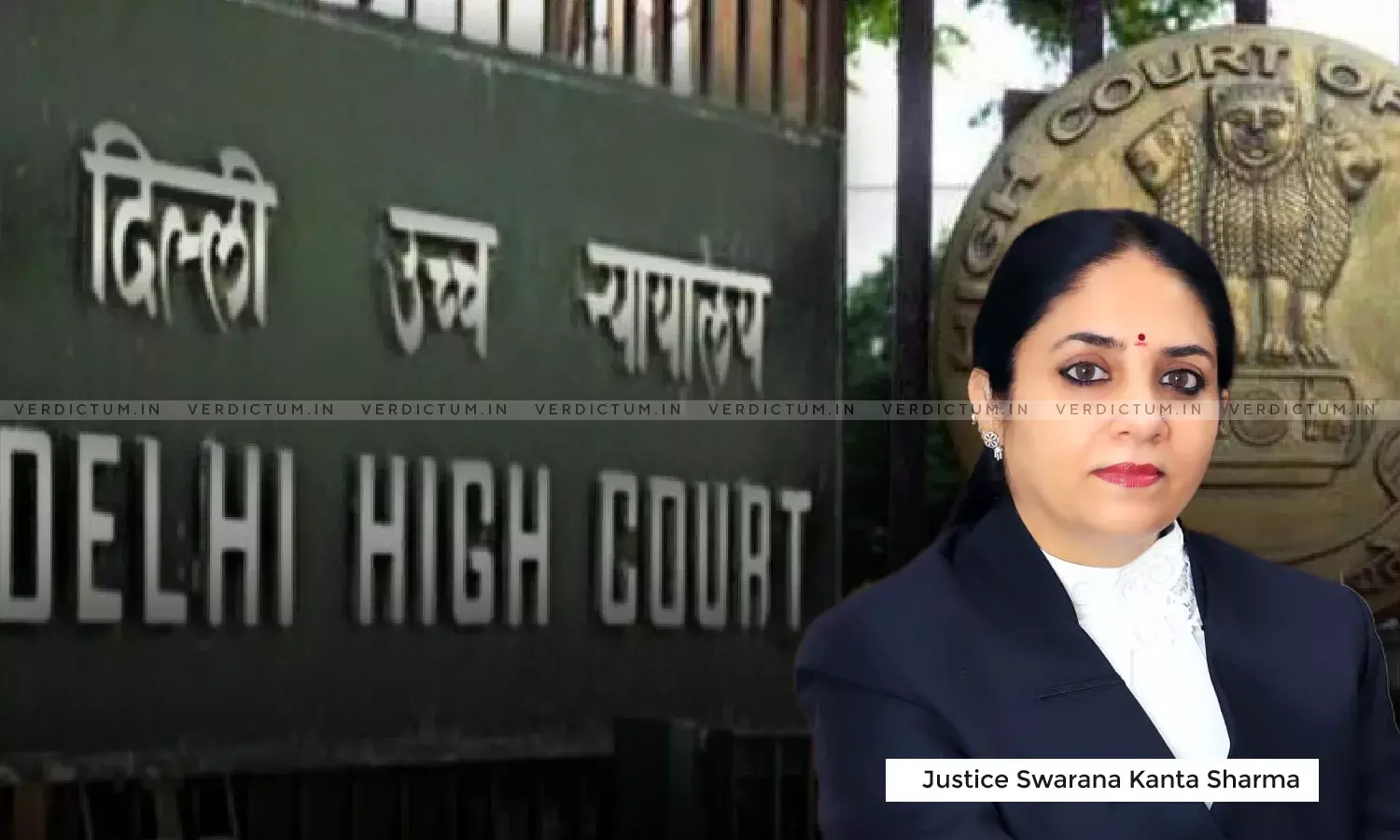Every Prisoner Entitled To Receive Basic Medical Care; Cannot Discriminate Between Rich & Poor: Delhi HC

Justice Swarana Kanta Sharma, Delhi High Court
The Delhi High Court observed that every prisoner, regardless of his financial standing, is entitled to receive basic medical care.
The Court directed the Secretary (Home), Government of NCT of Delhi, and Secretary, Health and Family Welfare, Government of NCT of Delhi to ensure that the health care requirements of the prison inmates are met and adequate medical infrastructure in the jail premises is maintained for ensuring right of prisoners to appropriate medical care.
In the present matter, liquor businessman Amandeep Singh Dhall (applicant), Director of Brindco Sales Pvt Ltd was arrested by the Enforcement Directorate for probe into the Delhi excise policy.
His grievance was that he was not being provided proper and appropriate treatment in terms of post-epidural care in the prison premises, and thus, sought interim bail, in order to get appropriate treatment from Indian Spinal Injuries Centre, Vasant Kunj, Delhi.
Accordingly, the bench constituted a committee comprising Director General (Prisons), CMO of the Delhi Prisons, Two senior Jail visiting Judges of the District Courts to be nominated by the Principal District & Sessions Judge (Central District), Secretary, DSLSA Sanjay Dewan, Advocate and Gayatri Puri, Advocate.
A bench of Justice Swarana Kanta Sharma in the present matter observed, “This case serves as a reminder that the quality of medical care within correctional facilities must be held to high standards, with a focus on the well-being and rehabilitation of inmates. The State Government has a moral and legal obligation to ensure that the healthcare needs of inmates are met with the same diligence and commitment as any other citizen”.
In the present matter, applications under Sections 439 read with Section 482 of the Code of Criminal Procedure, 1973 read with Section 45 of the Prevention of Money Laundering Act, 2002 were filed on behalf of applicant seeking grant of interim bail in for offences under Section 3 and 4 of PMLA for a period of twelve weeks on medical grounds.
Considering his spine medical condition, the bench noted that he cannot be taken to any outside hospital on OPD basis, because of the constant jerks and vibrations, and if the medical treatment is not provided to him, the same may also lead to paralysis of his upper limb.
“Incarceration does not deprive individuals of their fundamental right to life which includes right to appropriate health care. Prisoners, like all members of society, may face various health issues, both pre-existing and emergent during incarceration. Denying them access to necessary medical care not only deteriorates their health conditions but can lead to preventable suffering and, in extreme cases, loss of life. This neglect not only undermines the principles of justice but also challenges the moral foundation of a society that values the dignity and worth of every human being even if, he is a prisoner”.
The bench even clarified on the “Public Perception of Preferential Treatment” while holding that “It is a common public perception that affluent individuals who find themselves incarcerated receive preferential treatment, including access to luxurious hospital facilities. However, it is crucial to dispel this misconception and highlight the fact that the provision of medical care within the criminal justice system is not determined by one's economic status. Every inmate, regardless of his financial standing, is entitled to receive basic medical care, a fundamental human right that transcends socio-economic disparities”.
Cause Title: Amandeep Singh Dhall v. Directorate Of Enforcement [Neutral Citation: 2023:DHC:9341]
Click here to read/download the Judgment

